A Portland man recounts his terrifying and surreal evacuation from the Holiday Farm Fire in Oregon’s Willamette National Forest
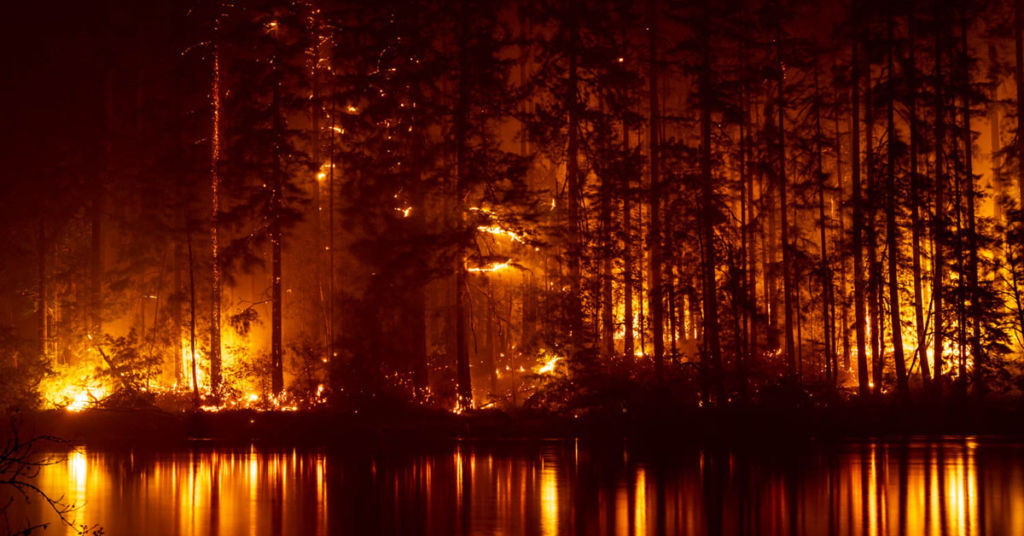
As of September 14, 745 personnel are fighting the Holiday Farm Fire, which has burned more than 165,000 acres along Oregon Route 126. Photo by Oregon Department of Forestry
By Dave Santen. September 14, 2020. I’d gone up on Sunday, September 6, for a three-night stay alone in a cabin overlooking Oregon’s McKenzie River, east of Vida and near Blue River. Before I left, I let my wife know where I was headed. I downloaded a map to my phone, took a compass and first aid supplies, plenty of water—stuff you probably ought to have in case of emergency.
On Monday, I hiked Olallie Mountain by myself. At the top, along with remnants of a Forest Service fire lookout that stood from 1932 until it burned in 2019, views of Three Sisters to the east were obscured by smoke from fires to the northeast near Mt. Jefferson. My cell phone pinged me with an alert of high winds forecast for later that afternoon.
Back at the cabin that afternoon, I watched across the river as trees whipped in the wind, and smoke rolled through. Conditions worsened and eventually I went indoors.
I had internet access and didn’t see any fires nearby, so I settled in for the evening. Around 8 p.m., the power went out, and I lost light and internet access.
MORE: Fire threatens Trapper Creek Wilderness
A woman named Jessica, who takes care of the property, came over from her house across the road with lights and batteries for the cabin’s artificial candles. The only fires reported were miles away, she said. I was more worried about the wind and the possibility of a large tree limb crashing through the roof.
I sat and read by artificial candlelight, listening to branches bounce off the sloped roof. At some point I could hear emergency vehicles moving through, heading east on Oregon Route 126.
The air worsened outside and the winds picked up. I considered gathering up my belongings, but I settled for leaving a pair of shoes by the bed instead, and turned in.
Caravan of evacuees
Just after midnight I woke; the windows above glowed with an orange light wrong for that time of night. I stared dumbly for a moment until a notice burst from my phone: Emergency Alert: A Level 3 GO NOW Evacuation notice from Nimrod East to the Mck Ranger Station
As I pulled on clothes and shoes I heard a banging on the front door and a woman shouting: “Fires! We have to evacuate now! Go now!”
I answered, grabbed an armful of belongings and my keys and rushed out the front door to my car. Cars and trucks swarmed west, while emergency vehicles blew past. Firefighters were near, helping notify people—I think I remember seeing them. Atop the hillside across the road, fires swarmed through the trees as winds blew in our direction—the sky itself looked to burn.
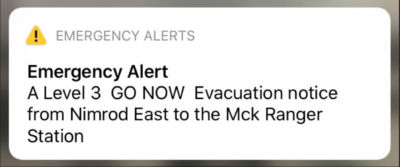
The midnight text that alerted residents and visitors it was time to move. Courtesy of Dave Santen
Throwing items in the car, I ran back inside, found my duffel bag and a laptop and realized that I wasn’t going to die packing. I ran back out, stuffed everything in the backset, slammed the cabin door shut, got in my car and peeled out into the caravan of evacuees.
We made our way through, past checkpoints, and gradually cars pulled off to the side of the road to assess. Another emergency notice came through on my phone—I couldn’t see it but I was glad to know I had it.
I drove awhile until I got to Springfield, past barns and people loading livestock, and gatherings of residents clustered at muster points. I finally pulled over after driving aimlessly through a smoky and silent Springfield, realized that my shirt was on backward and that I’d left my glasses.
I drove north to Woodburn before I finally could see stars and sky through the smoky haze.
Back home in Portland I slept a few hours. The day was clear and quiet. I searched for news of the Holiday Farm Fire and watched it bloom to more than 150,000 acres. (For updated information on the Holiday Farm Fire go to the multi-agency Incident Information System website.)
I saw photos of communities burnt to the ground, and evacuees forced further west. I watched the desperation of residents waiting for firefighters to arrive. A spokesperson with one of the agencies said that fewer than 200 were deployed in a fire that would typically require more than 1,000 to manage.
Rumors of looters, rumors of antifa, rumors of buildings still standing or still burning, rumors of roads still open or closed, all moving as fast as the fire itself. Volunteers delivering equipment to firefighters shoot video on their camera phones that gets posted online—grim narrations as they pass one structure after another: “Gone. Gone. Gone. That one looks all right. Gone. …”
I ride alongside virtually, via social media, up and down those roads, comparing it to street views on Google Maps, trying to correlate the snapshots of lush forest and river with the ash and char of the landscape now.
I found Jessica, the cabin’s caretaker, on Facebook, confirmed that she’d been the one who knocked on my door and thanked her. She and her family were OK. But the cabins she manages were gone, including the one I’d been staying in. They’d burned shortly after my evacuation.
I don’t have any business telling this story—I was an overnighter in an area where people lost homes and businesses and potentially lives. I didn’t lose anything. Not really. Stuff I’d planned to go back for: a guitar that I finally bought myself after years of excuses not to. Old fishing lures and equipment that had been my dad’s and his dad’s. Clothes. Papers. Projects I’d set aside for someday. Everything I thought I might want to finally do on a few days’ vacation, away from work and family and obligations and politics and pandemics.
Today the smoke in Portland and across the Northwest chokes us. Air quality monitors that gently nudge you to open the windows when AQI nears high double-digits now flare with hopelessly high counts: 300, 400, 600?
In that smoke, loss. Homes. Businesses. Retirements. Habitats. Lives imagined and lives forfeited. With every breath, that loss.
Dave Santen lives in Portland.
Share your fire and smoke experiences by leaving a comment below.

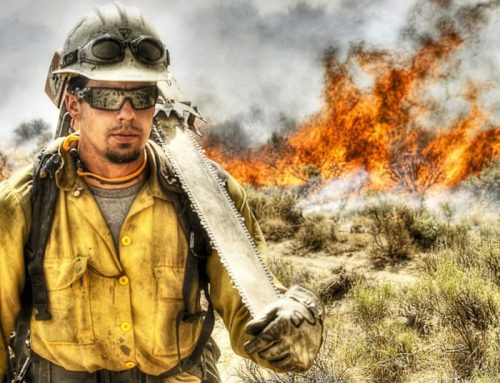
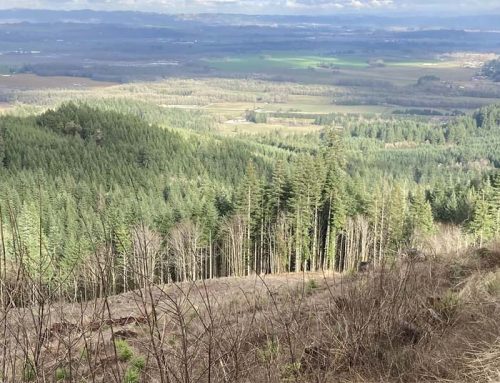
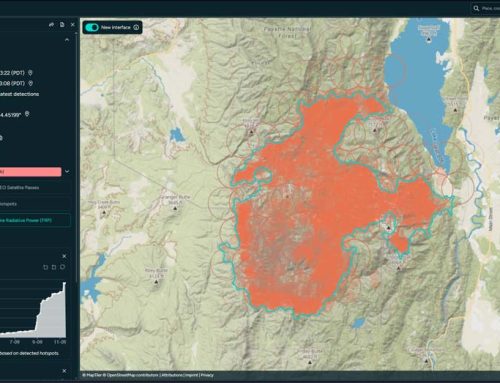
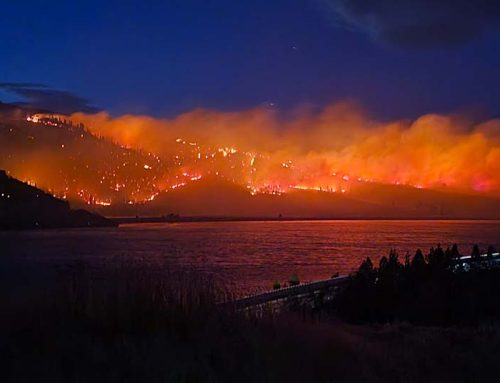
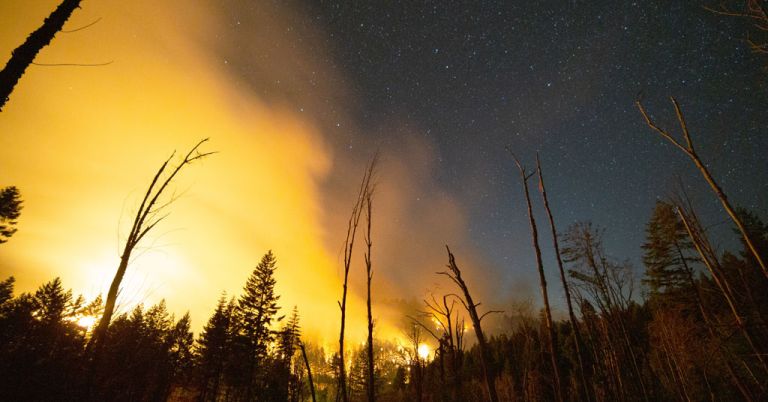
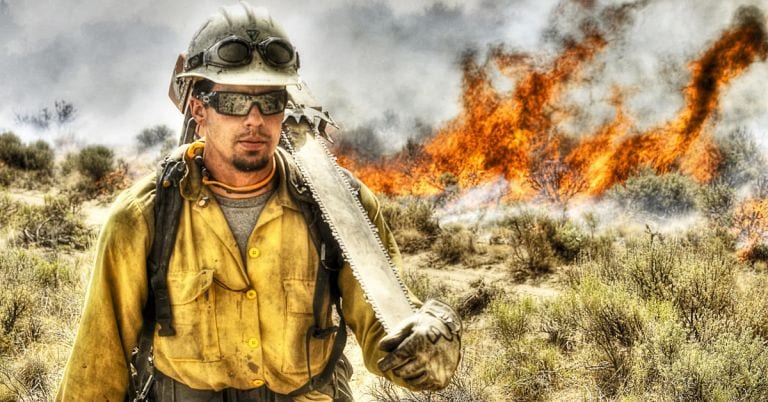
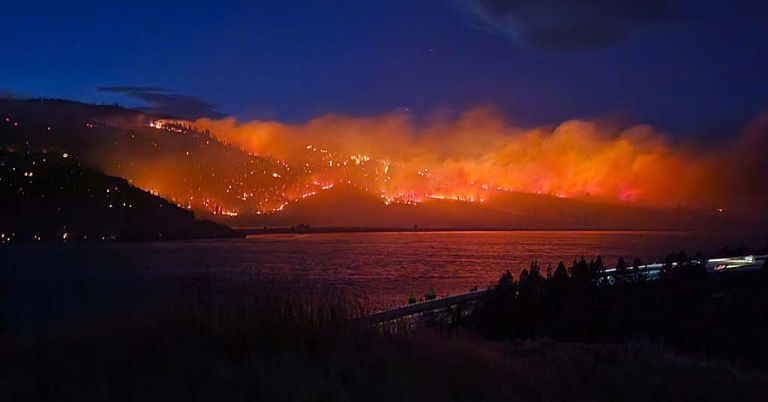



Thanks for sharing this well written account of your very scary experience, Davy. You make these climate issues more meaningful for those of us that live thousands of miles away.
Dave, eloquent commentary. Glad you’re safe to tell this tale.
I am a Blue River, Oregon that gratefully made it out in time with my family though I almost didn’t and had to drive through the heart of the fire as it blazed clear across highway 126 and burning embers filled the road. I don’t think I have ever been so terrified in my life. I honestly thought the tires on our suv were going to melt and there was a wall of fire 200 feet high on each side of the vehicle and I could literally feel the heat through my car door. Our family made it to Springfield safe by the grace of God and we found out that our home was one of the very few that made it in Blue River. It’s so hard to be excited when everyone you know and love in your community have lost everything. So I’m trying to see this as ours is still standing so that we can help others rebuild. We’re sitting in a hotel alive with our children and 3 dogs we threw in our car that night awaiting for the okay to go back up as soon as we can to start helping with clean up in our community. I love the McKenzie River Valley and cannot ever see myself living anywhere else……. we will rebuild and be even stronger! #McKenzieStrong
Jessica is one of my dearest friends she’s originally from California she has a heart of Gold. She lost everything and will have to start over but she’s alive and get young son. Thank you for sharing about her.